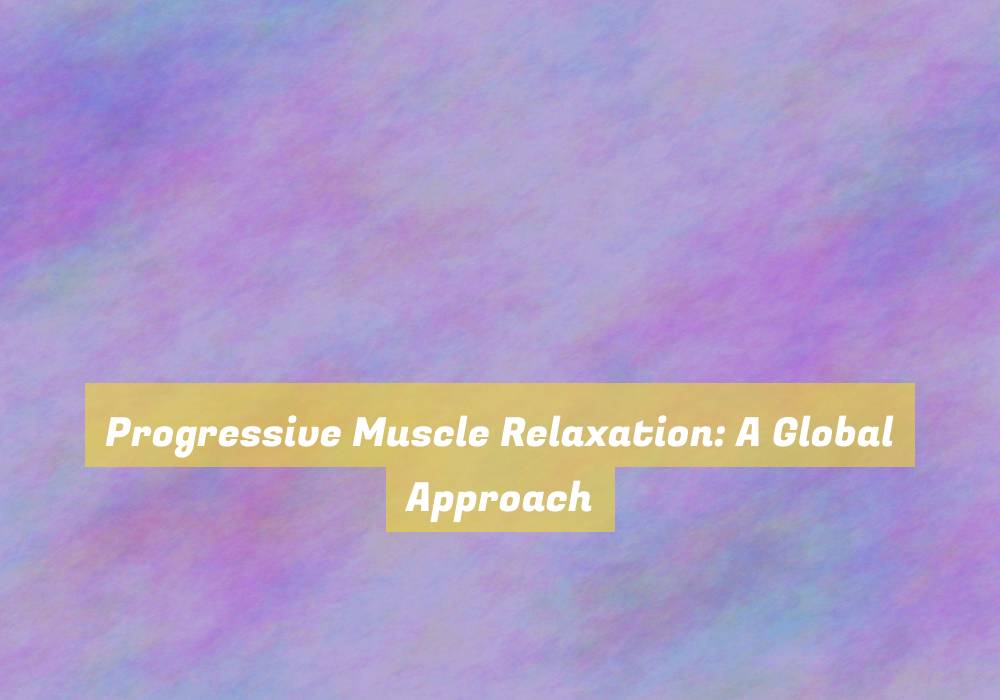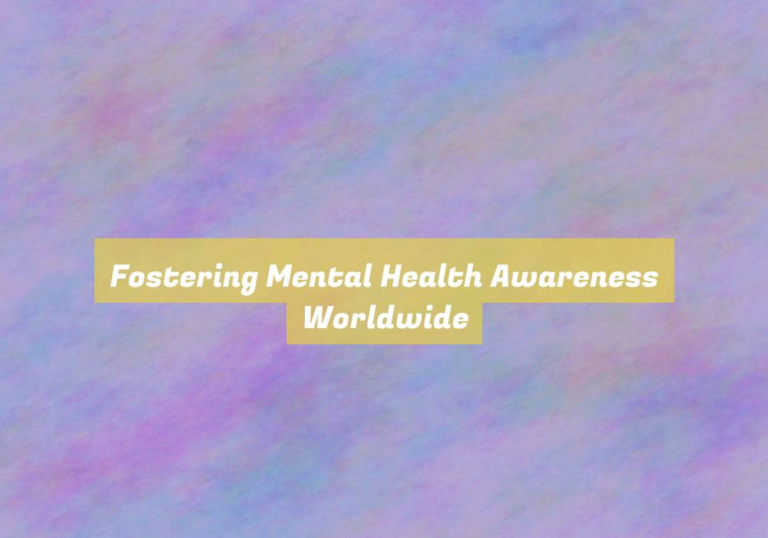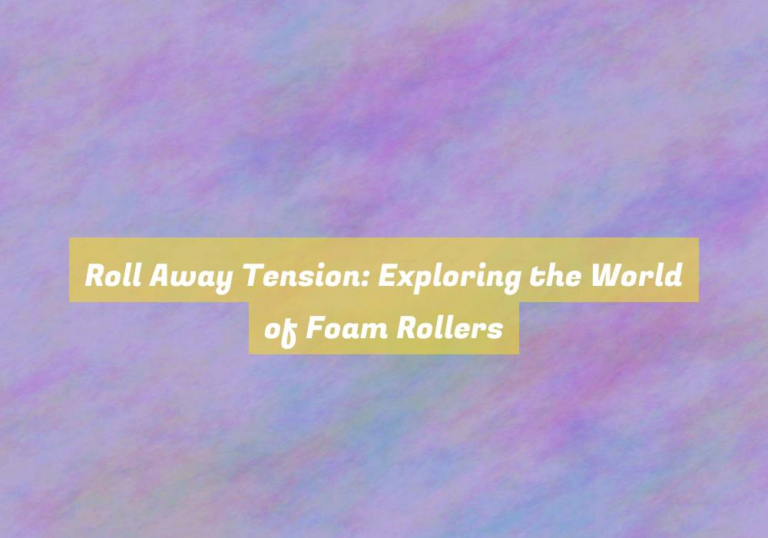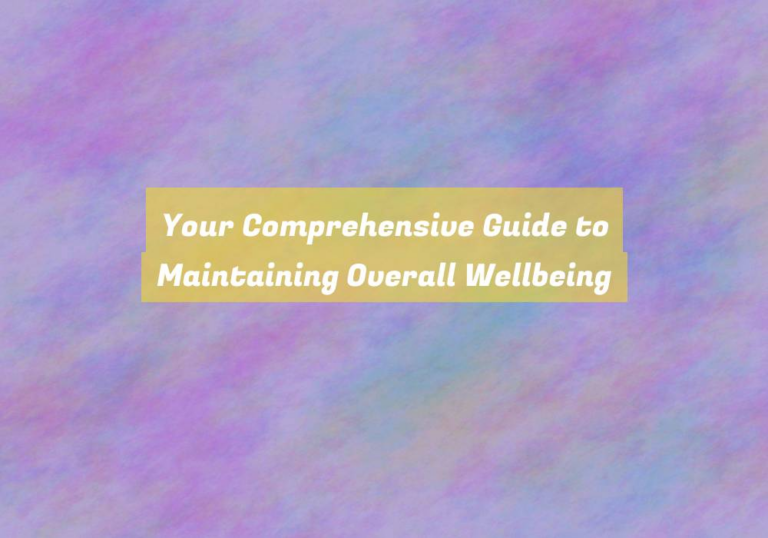Progressive Muscle Relaxation: A Global Approach
Have you ever wondered if a relaxation technique can truly transcend cultural and geographical boundaries?
The concept of Progressive Muscle Relaxation (PMR) is gaining traction on a global scale, and its potential impact on mental well-being is a topic of increasing interest.
As you explore the history, cross-cultural adoption, and effectiveness of PMR in diverse contexts, youG??ll gain valuable insights into the potential benefits and challenges of implementing this technique on a global scale.
History of Progressive Muscle Relaxation
The history of Progressive Muscle Relaxation dates back to the early 20th century when it was developed by Edmund Jacobson. Jacobson, a physiologist, introduced this technique as a way to alleviate tension and stress. He believed that mental anxiety often manifests physically, and sought to address this connection through systematic muscle relaxation.
JacobsonG??s method involved tensing and then relaxing specific muscle groups, aiming to heighten awareness of bodily sensations and reduce overall tension. This approach gained popularity in the medical and psychological communities due to its non-invasive nature and the potential for widespread application.
Over time, Progressive Muscle Relaxation became integrated into various therapeutic practices, including stress management, pain reduction, and anxiety treatment. Its effectiveness in promoting relaxation and overall well-being has been supported by numerous studies, further cementing its place in modern healthcare.
Today, Progressive Muscle Relaxation continues to be utilized as a valuable tool for individuals seeking to manage stress, improve sleep, and enhance their overall quality of life.
Cross-Cultural Adoption and Integration
As you explore the impact of Progressive Muscle Relaxation in different cultural contexts, youG??ll uncover how this technique has been adopted and integrated across diverse communities worldwide.
The beauty of Progressive Muscle Relaxation lies in its adaptability to various cultural norms and practices. In Japan, for instance, it has been seamlessly integrated into the concept of G??kaizen,G?? which focuses on continuous improvement. In some African communities, it has been merged with traditional dance and rhythmic movements, creating a unique blend of physical relaxation and cultural expression. In Western societies, it has been incorporated into mindfulness practices, enhancing its appeal and accessibility.
The cross-cultural adoption of Progressive Muscle Relaxation speaks volumes about its universal applicability and effectiveness. It has transcended language barriers and cultural differences, offering a common ground for individuals seeking relaxation and stress relief. The integration of this technique into diverse cultural settings hasnG??t only widened its reach but has also enriched it with new perspectives and applications.
This global integration emphasizes the versatility of Progressive Muscle Relaxation, proving that relaxation knows no bounds and can be embraced by people from all walks of life.
Effectiveness of PMR in Diverse Contexts
Explore the varying effectiveness of Progressive Muscle Relaxation (PMR) in diverse cultural contexts, shedding light on its adaptability and impact across different communities.
PMR has demonstrated its effectiveness in diverse contexts, transcending cultural boundaries to provide tangible benefits. Its impact is evident in various communities, showing that PMR is adaptable and beneficial across different cultural backgrounds.
In Western cultures, PMR has been widely embraced as a relaxation technique, helping individuals manage stress and anxiety.
In Eastern cultures, PMR has been integrated into traditional medicine practices, complementing holistic approaches to health and well-being.
Moreover, PMR has been found to be effective in indigenous communities, offering a culturally sensitive approach to mental and emotional wellness.
The techniqueG??s simplicity and flexibility make it accessible and applicable in a wide range of cultural contexts. Its ability to promote relaxation and reduce muscle tension transcends cultural differences, making it a valuable tool for individuals worldwide.
As such, the effectiveness of PMR in diverse cultural contexts underscores its universal appeal and potential to positively impact individuals across the globe.
Potential Impact on Global Mental Well-being
Considering the potential impact of Progressive Muscle Relaxation (PMR) on global mental well-being, incorporating this technique into diverse cultural practices could significantly contribute to promoting emotional resilience and stress management worldwide. By integrating PMR into various mental health initiatives, individuals from different cultural backgrounds can benefit from its universal principles of relaxation and stress reduction. This could lead to a more widespread adoption of PMR as a tool for improving mental well-being on a global scale.
Additionally, the accessibility and simplicity of PMR make it a feasible option for promoting mental wellness in resource-constrained environments. Its non-invasive nature and minimal requirement for specialized equipment make it an attractive option for implementation across diverse global settings. By emphasizing PMRG??s potential to alleviate symptoms of anxiety, depression, and other mental health challenges, thereG??s an opportunity to address the global burden of mental illness more effectively.
Furthermore, the integration of PMR into global mental health practices can help cultivate a more comprehensive and inclusive approach to mental well-being. By recognizing the importance of cultural relevance and tailoring PMR techniques to suit diverse populations, it can serve as a unifying tool for fostering emotional resilience and well-being worldwide.
Conclusion
In conclusion, progressive muscle relaxation (PMR) has proven to be an effective and widely adaptable technique for promoting mental well-being across diverse cultural contexts.
Its history, cross-cultural adoption, and demonstrated effectiveness make it a valuable tool for improving global mental health.
By embracing PMR as a global approach, individuals and communities can benefit from its positive impact on stress reduction and overall mental wellness.






You know, I tried PMR after a particularly stressful week—let’s just say my muscles haven’t had that much fun since gym class in high school. Is it just me, or does it feel like my muscles are auditioning for a role in a drama? One minute they’re tight, and the next, they’re like “Oh, relax, it’s just a gentle cue to let go!”
It’s interesting how our muscles can reflect our emotional states so vividly, isn’t it? The tension you experienced after a stressful week is something many people go through; muscles really do seem to have their own personalities sometimes. That tightening followed by a release can feel like a little dance, where your body is trying to communicate what it needs.
It is fascinating how our bodies carry the weight of our emotions; it’s like they have their own vocabulary that we sometimes struggle to interpret. The way muscle tension can creep in after a stressful week really resonates with me. I remember a particularly hectic work month where I felt like my shoulders had taken on the responsibility of carrying all my stress. It’s almost as if our muscles become little messengers, trying to alert us to what’s going on inside.
You’ve hit on a really important point about how our bodies respond to stress. It’s like they’re trying to communicate with us in a way we often overlook. When muscle tension builds, it serves as a physical reminder that something isn’t quite right emotionally. The connection between our physical sensations and emotional states isn’t always obvious, but your example of the shoulders carrying stress is a classic demonstration of how subtle, yet significant, our body’s signals can be.
It’s incredible how our bodies serve as a storage space for our feelings, isn’t it? That sense of your shoulders bearing the weight of your stress really captures how our physical sensations often reflect what we’re experiencing emotionally. I’ve noticed that too—when life gets hectic, my body can feel like an echo of everything that’s happening around me.
It’s so interesting how you describe the connection between emotions and the physical sensations we experience in our bodies. The concept of muscle tension as a sort of alert system is one I’ve thought about a lot, especially as I navigate the ups and downs of daily life. It’s like our bodies are silently communicating with us, revealing what we sometimes can’t put into words.
It sounds like you had quite the experience with Progressive Muscle Relaxation (PMR)! The way you describe your muscles auditioning for a drama caught my attention. It really captures the essence of what we often feel when trying to tune into our bodies, especially after a stressful stretch. That tightness can be such a familiar sensation, a bit like an overzealous actor taking on their role a bit too seriously.
Your experience with PMR really highlights how our bodies communicate with us, doesn’t it? That dance between tension and relaxation is like a reminder of how we often carry stress without realizing it. It’s almost poetic when you think about it—muscles oscillating between their drama-filled roles.